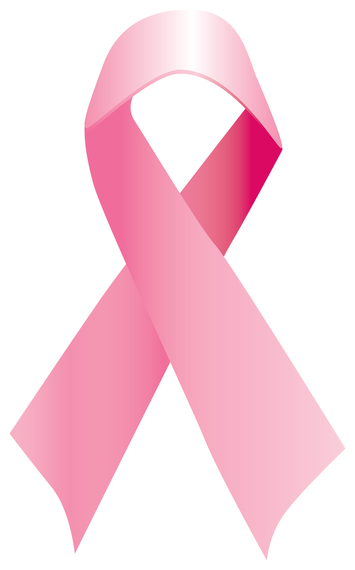It’s October again. For many people, October is a time for pumpkin spice everything, watching football, feeling the warmth of a cozy sweatshirt, and enjoying the colors of fall as the leaves change to red, orange, and yellow. These are the traditional colors of fall, but pink is another color we see a lot of this time of year – because October is Breast Cancer Awareness Month. This time each year, my thoughts lead to personal reflection because in October 2012, I was diagnosed with breast cancer at the age of 40. As you might expect, the news was not anticipated. I was immediately faced with making decisions about surgery and treatment, and also, understanding what, if any, impact the diagnosis might have on my future.
One worry I did not have at that time, was how my employer would react to the news of my diagnosis. Being part of the JAN family, there is comfort in knowing that my employer values what I bring to the table and is willing to support me to be successful at work, and in life. Unfortunately, many people who face a breast cancer diagnosis are not so fortunate – their thoughts quickly turn to wondering if they will be able to continue working, if they can take time off for treatment, and if their employer will look for a way to let them go simply because they have cancer. Amidst the worry of survival, one should not also have to worry about livelihood, but this is a reality for many.
According to the American Cancer Society, there are more than 3.8 million breast cancer survivors in the United States; this includes people still being treated and those who have completed treatment. Many survivors find that continuing to work through cancer treatment aids in their recovery. Based on my personal experience, I agree with this notion. Ability to work during treatment can be influenced by the type of treatment received (e.g., chemo, radiation, etc.), the stage of cancer, the individual’s overall wellbeing, and the kind of work the individual does. The availability and effectiveness of workplace supports, also known as job accommodations, can also significantly impact a survivor’s ability to continue working. Being supported in the workplace makes it easier to remember who you are, apart from the cancer. It allows you to continue contributing at work and get on with living.
The Americans with Disabilities Act (ADA) requires employers to provide reasonable accommodations that are needed because of limitations caused by cancer, the side effects of medication or treatment for cancer, or both. The objective in providing accommodations is to make adjustments that enable an employee to perform essential job duties, or access benefits and privileges of employment. Accommodations that are commonly requested by employees with breast cancer, such as a modified/flexible schedule, ergonomic equipment, and telework, are also workplace supports that many employers make available to all employees, for reasons that are unrelated to disability – often to achieve a healthy balance between managing life and work. These adjustments not only benefit employees with cancer, but benefit employers as well, by increasing employee presence and leading to less worry about when and how work will be completed.
In my own experience, I took a couple days of leave for surgery and was able to schedule all cancer treatments to occur before my work day started, but my employer allowed me the flexibility to modify my schedule, if needed. Remember though, each individual’s accommodation needs will be different and will sometimes depend on access to treatment and the effects of treatment. I had access to medical care where I lived and worked, which made it easier for me to seek treatment outside of my work schedule. Not everyone is this fortunate. Some employees may need to flex their arrival/departure time to receive treatment, make-up time missed, schedule longer days to work a shortened work week, telework while recovering, or use accrued or unpaid leave in order to travel to receive treatment. These and other types of adjustments can positively impact health outcomes by freeing individuals from the worry of choosing when and how to obtain treatment in order to stay employed.
Local and systemic breast cancer treatments can cause short and long-term side effects that can impact performance of job duties, for some people, but not all. These effects can include: nausea and vomiting; fatigue and weakness; loss of appetite; skin irritations; loss of hair; lymphedema; pain and numbness; temperature sensitivity; diarrhea; and difficulty with memory and concentration (e.g., “chemo brain”). Many of these limitations can easily be accommodated in the workplace. Accommodations for employees with breast cancer range widely, but some examples include:
- Working a flexible/modified schedule or making-up time missed for treatment, appointments, etc.
- Working a reduced/part-time schedule or changing a shift
- Using accrued paid leave, or unpaid leave under the ADA and/or federal and state leave laws, and modifying an attendance policy to allow disability-related absences
- Parking closer to the work-site
- Working from home, as-needed, or on a regular basis
- Modifying a dress code to allow wearing a scarf, hat, unrestrictive clothing
- Reducing visual and auditory distractions
- Taking breaks for mental and physical fatigue
- Restructuring a job so the most difficult tasks are performed at the time of day the employee has the most mental and/or physical energy or stamina
- Designating uninterrupted time for tasks that require significant concentration
- Using ergonomic equipment to accommodate tightness or pain in the upper region of the body
- Modifying work-site temperature
Researchers continue to search for ways to prevent, treat, and cure breast cancer. We’re reminded every October of the ongoing race to save lives. With employer support, open communication about performance expectations and accommodations, and good planning, employees with breast cancer can be better equipped for survival and success at work and in life. JAN can support employers and survivors in this effort by offering ADA technical assistance and accommodation guidance. For general information about cancer, accommodations, and the ADA, see JAN’s A to Z: Cancer, or contact us for individualized consultation.
Additional Resources:
American Cancer Society – Breast Cancer
National Cancer Institute at the National Institutes of Health – Breast Cancer











Comments